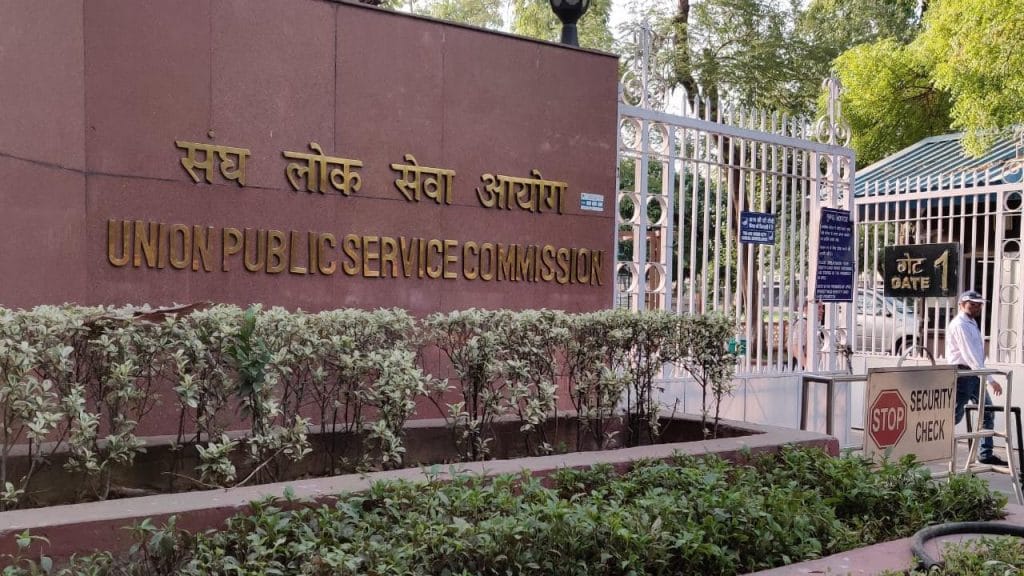New Delhi: There is a sense of anxiety among IAS officers over the Narendra Modi government’s move to recruit domain experts into the civil services. However, the UPSC-recruited lateral entrants believe that their induction poses no threat to the country’s decades-old bureaucratic structure.
A few of the nine domain experts shortlisted by the UPSC earlier this year spoke to ThePrint on the condition of anonymity, given that they want to maintain discretion since the government is still in the process of appointing them. They said they view their appointments as an arrangement meant to supplement the existing system, and not disrupt it.
“We view lateral entry only as an intervention-based effort, not a disruption as it is sometimes construed. Our induction is only to make policy-making sharper and clearer, and to bridge the gap between industry, regulatory bodies and ministries,” said one selected candidate.
“All humans have the fear of unknown, but when the unknown becomes known and familiar, the fear dissipates,” the candidate added. “Ultimately, the senior civil servants are also human, so they may have some reservations… But once we join, and they see that we are only there to help, the fear will go.”
Asked if lateral entrants may not be allowed to function seamlessly by the existing bureaucracy, another candidate said: “This is the first time an institutionalised lateral entry is taking place in the Government of India, but it’s not like it hasn’t happened before. The perception that we will not be allowed to work or anything is unfounded. There has to be a two-way understanding that we are there to help in certain areas, and we will require help in some areas.”
Also read: Lateral entry will not help improve governance. Comprehensive human resource management will
What will they bring to the table?
While the government has pitched the idea of lateral entry as a way to fill gaps in governance which require high degrees of specialisation and field expertise, career civil servants have argued that being a generalist and an expert in administration is, in fact, a strength.
Asked what they can bring to the table that career civil servants may not be able to, the first candidate quoted above said: “We cannot comment on what we can bring to the table prematurely. But clearly, it has been felt for some time now that there are some gaps which require high-end specialisation.
“We will just bring an insider view, in some cases even the strategic view, to decision and policy-making.”
Asked if they would lack experience in governance, a third candidate said they would have others who have governance experience to guide them. “Anyway, it is not like we will be left to do everything on our own. Nothing that we suggest would go through without the secretary or minister’s approval,” the thid candidate said. “We will work like a team.”
The government is also going to provide a short training to these candidates on how the central government works.
Conflict of interest
According to the candidates, the government has so far not asked them for any declarations to prevent conflict of interest. However, several civil servants have cited that as a potential threat, since no cooling-off period has been stipulated either for the joint-secretary rank recruits or the 54 being recruited by the NITI Aayog.
“Even we see in the media that a lot of such questions on conflict of interest, reservation, etc. are being raised. Frankly, the PMO, UPSC, DoPT, etc. would be equipped to answer these questions,” said the first candidate. “It is possible that at the time of appointment, we are asked to give some kind of declaration.”
Others agreed that it is incumbent upon the government to formulate a mechanism to prevent conflict of interest, citing that it already brings in consultants to work on contracts, so it shouldn’t be something new.
According to the rules of recruitment for consultants in the NITI Aayog, which hires consultants extensively on a contractual basis: “In case the services of the consultant are not found satisfactory or found in conflict with the interests of the government, his/her services will be liable for discontinuation without assigning any reason.”
However, a retired IAS officer who did not want to be named said there is very little that can be done to prevent conflicts of interest if the recruitment is not carried out by a body like the UPSC whose integrity is beyond suspicion. “Now, the NITI Aayog is also recruiting lateral entrants. That poses a real threat of giving rise to a ‘committed bureaucracy’,” the officer said.
“We are not opposed to lateral entry. The objective may be laudable, but the process has to be beyond doubt too.”
Not getting impatient
There is no word yet on when the nine selected candidates for the departments of financial services, economic affairs, agriculture, cooperation and farmers’ welfare, civil aviation, commerce, environment, forest and climate change, new and renewable energy, road transport and highways, and shipping will actually be given their appointment letters. But they are not getting impatient.
“The work is going on in full swing. It is only understandable that it will take time for the government to figure out the modalities,” said one candidate. “It is best that work like this is not done in haste.”
Also read: Subramanian Swamy was right. Modi’s lateral entry plan will make reservations irrelevant
